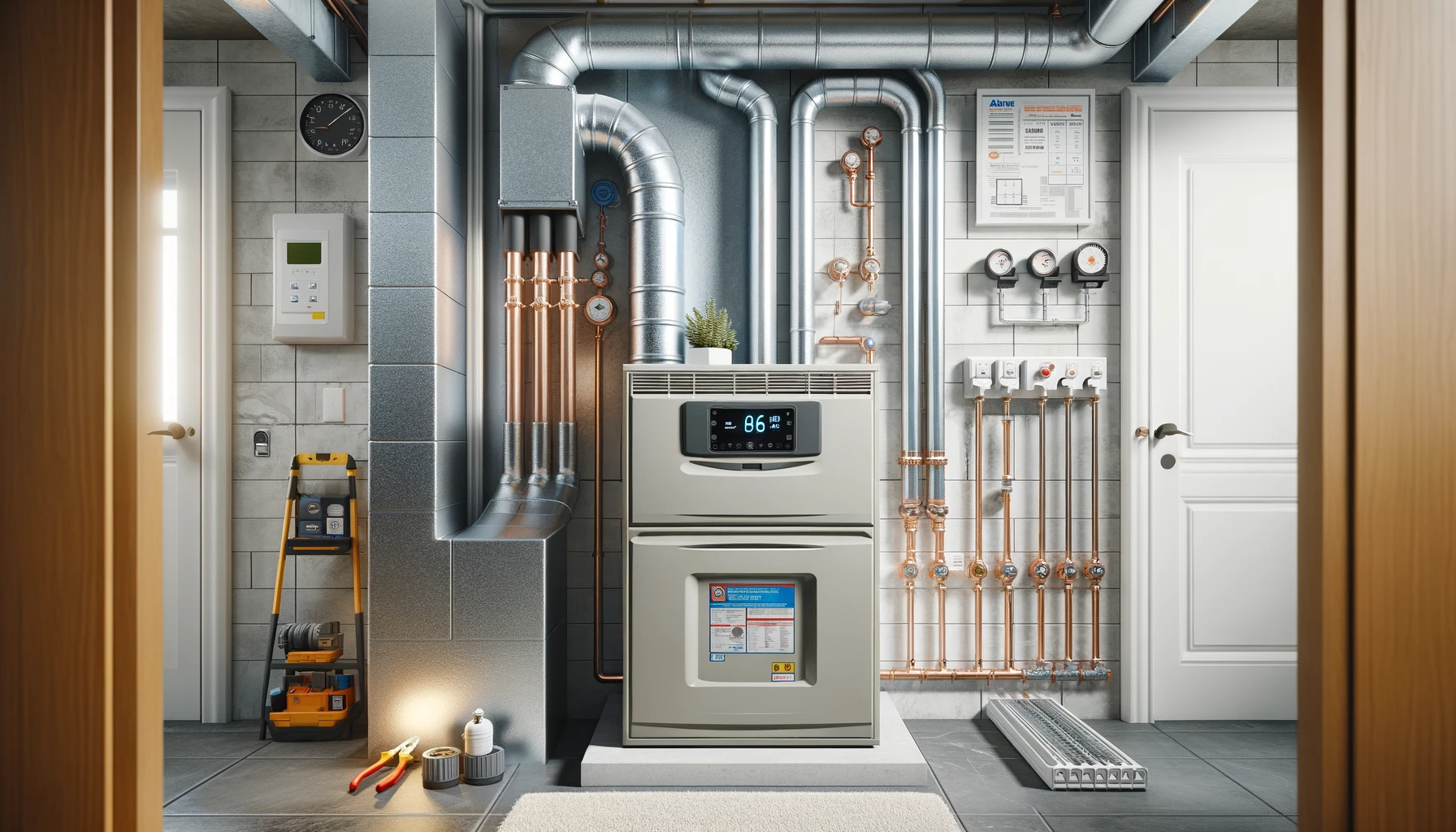
TUNE-UP HEATING SYSTEM
As winter unfolds, your heating setup becomes crucial to maintaining a cozy abode. Initiate the season by arranging an expert review of your heating mechanism.
During these frosty times, your furnace fan tirelessly draws air, now laden with particles and grime. Midway through these colder periods, it’s wise to replace the HVAC filter. An obstructed filter leads to uneven heating and diminished air circulation, causing your furnace to exert excessively.

SEAL WINDOWS & DOORS
Drafts in your home can lead to heat loss and higher energy bills. Use a simple candle to spot drafts, or opt for an electronic heat detector for a more thorough check.
To boost your home’s energy efficiency, here are some steps:
-
- Seal windows using plastic sheets or insulation kits.
-
- Block door leaks with foam or weatherstripping materials.
-
- Install storm doors on frequently used external doors.
-
- Reapply or add caulk to external windows and door frames, and fill any gaps where heat might escape. Opt for cold-weather caulk, designed to withstand temperature fluctuations without cracking.
-
- Use thicker curtains or drapes to cover windows.
-
- Place fabric or towels over pet doors and mail slots to prevent drafts.

REVERSE CEILING FANS
Cold air naturally settles near the floor, while warm air rises, a fact more noticeable in rooms with high or vaulted ceilings. Adjusting your ceiling fans in winter can help manage room temperature effectively. Find the switch on your fan that changes the blade rotation direction. Set the blades to turn clockwise. This movement pushes warm air down the walls and across the floor. Operate the fan at its lowest speed to distribute heat evenly, making the space feel more comfortable.

CHECK SMOKE & CARBON MONOXIDE DETECTORS
During winter, home maintenance includes ensuring the proper functioning of smoke detectors and carbon monoxide alarms. First, regularly clear any dust or debris that could block their vents. Test the alarms by pressing the “test” button. If there’s no sound, it might indicate a malfunction, an expired device, or a need for new batteries. Replace the battery first; if the alarm still fails, it’s time for a new unit.
Remember, smoke detectors have a lifespan of about 10 years. Check for an expiration date on the sticker or the manufacturing date inside. If you can’t find a date, it’s safer to replace the unit to guarantee it’s working effectively.

ADD INSULATION
To minimize heat loss from attics, basements, crawl spaces, and walls, proper insulation is key. It not only keeps your home warmer but also helps reduce utility bills. Ensure you’re using insulation with the recommended R-value, which is a measure of thickness and density, for your specific area.
Ideally, insulation should be between 10 to 14 inches deep. If you notice drafts, it’s a sign to add more insulation in those areas. Also, inspect for any torn or missing insulation and replace it as needed.
As temperatures drop, water pipes are at risk of freezing and bursting. Wrapping them in tubular insulation can prevent this. Remember to disconnect outdoor hoses and check for leaks.
To protect outside faucets from freezing, consider using spigot covers. Another tip to reduce heat loss is to cover wood or tile floors with area rugs, which add an extra layer of insulation.

CLEAN CHIMNEY & HVAC VENTS
Ensuring a clear chimney is crucial for home safety, particularly in winter. Have a professional clean your chimney and flue to prevent the release of harmful fumes. If you rarely or never use your fireplace, consider using a chimney balloon to block cold drafts and wind.
To enhance your HVAC system’s efficiency and improve your home’s air quality, it’s wise to have the ducts cleaned. Dirt, dust, and pet dander accumulation in air ducts can strain your system, making it work harder than necessary. Regular cleaning can help maintain optimal performance and cleaner air throughout your home.

KEEP GUTTERS CLEAN
Maintaining clear gutters is crucial not just in autumn but also during the winter. Accumulated snow can fill and strain gutters, potentially pulling them from their fittings on the roof. As temperatures fluctuate, snow and ice can melt and refreeze, posing a risk of water pooling and causing roof damage. To avoid these problems, make it a habit to frequently clear out snow, ice, and any debris from your gutters and downspouts.

CHECK TREES AND SHRUBS
Winter storms pose a significant threat to trees on your property. The combination of heavy ice and strong winds can lead to broken limbs and even uprooted trees.
To mitigate these risks, it’s important to regularly trim branches, especially those near power lines and your home’s roof. Hiring a professional arborist to assess the health of your trees can be a wise decision. Additionally, clearing any leftover leaves from your lawn and flower beds is beneficial. When freeze warnings are issued, be prepared to cover your plants and shrubs to shield them from the harsh weather.

WINTER TOOL CARE
Winter conditions can challenge power tools, but with proper care, they remain efficient:
-
- Lubricate Regularly: Follow the manufacturer’s guidelines for lubricating your tools to prevent rust and maintain smooth operation.
-
- Store Cordless Tools in Warm Areas: Cordless power tools perform better when stored in heated spaces like a shed or garage to protect their batteries.
-
- Maintain Battery Health: Charge batteries fully before storage and top them up every 30 days.
-
- Clean and Dry Tools After Use: This step is vital to avoid rust and keep tools in good condition, especially after exposure to moisture.
-
- Choose High-Quality Tools: Better-quality tools often resist winter damage more effectively and might come with warranties for added protection.
-
- Proper Storage: Keep tools in a dry, well-ventilated space to prevent moisture damage. Elevated storage can protect against ground moisture.
-
- Warm Up Tools Before Use: In extreme cold, allow tools to warm up indoors to prevent breakage.
-
- Wrap Sensitive Components: Use burlap or foam wraps for additional protection from cold and moisture.
For detailed winter maintenance tips, check out resources at SlashGear and MorningChores.

MORE WINTER MAINTENCE IDEAS
There are several more things you can do to keep your home and yard in tip-top shape during the winter:
-
- Regularly vacuum bath fans, refrigerator, and freezer coils to clear dust and debris.
-
- Cover outdoor air conditioning units in snowy or icy regions.
-
- Prevent plumbing strains by routinely cleaning drains in sinks, tubs, showers, and dishwashers.
-
- Inspect and clear your sump pump’s exterior drain.
-
- Maintain a full gas tank and store an emergency kit in your car.
-
- Consider a full home or portable generator for power outages, adhering to safety guidelines.
These winter maintenance practices not only enhance heating efficiency and reduce utility costs but also contribute to the overall well-being of your home. For expert real estate advice and support in maintaining your home’s value, remember to reach out to Logan Wing.


